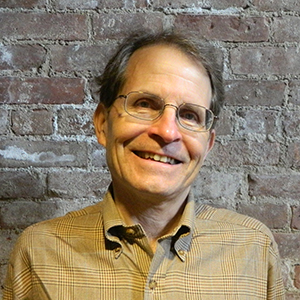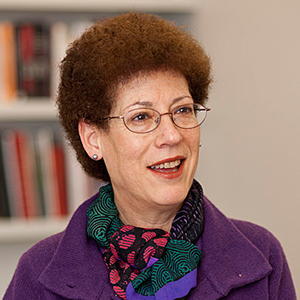The future of work lies more in our politics than our robotics. To be sure, technology will matter hugely, as it always has. To live amid Uber, Amazon, and call centers in Bangalore is to know the power of our digital tools and a globalizing labor market to change the world of work. Projected breakthroughs in automating textile production, for example, could threaten the jobs of millions of people around the globe. But lest we think the past and future follow ineluctably from technological change and market forces beyond anyone’s control, remember how much our political choices have shaped those forces and the conditions under which we labor.
Herrick Chapman is an associate professor of history and French studies at New York University.

To see the power of the political, consider how much the work world varies across nations in Europe and the United States. Denmark, for example, has pioneered the “flexicurity” model that has come to characterize employment policy in the rest of Nordic Europe. There, strong unions have conceded considerable flexibility in work contracts, especially employers’ ability to hire and fire, in exchange for a robust safety net of unemployment benefits, retraining opportunities, and social security.
In Germany, where about 18 percent of the work force is unionized, employers and unions have maintained the system of co-determination put into place after World War II that gives employees representation on company boards. Most employers in Germany’s relatively healthy manufacturing sector still prefer the stability of collective bargaining to the anti-union strategies that have become commonplace in the United Kingdom and U.S. German labor, management, and state cooperate to sustain a longstanding approach to training and apprenticeship that funnels a hefty, predictable portion of youth into high-skill jobs. Germany’s system hardly works well for everyone. It has widened the income gap for the unskilled, immigrants, and the precariously employed, especially in the wake of the Hartz reforms of 2002–05, which reduced support for and tightened controls over the unemployed. Service workers have continued to struggle to close the wage gap with manufacturing.
In France, the politics of employment and social welfare has taken yet a different turn. Despite their paltry formal membership (eight percent in this country with no closed shops), French unions can often command impressive support when welfare provisions and working conditions of the wider public are on the line. The politics of the street—of massive demonstrations in Paris and other cities—can be decisive too, as they were in 1995 over pension reform and in 2006 over hiring and firing rules. This history has produced sturdy protections for the employed from arbitrary dismissal, exploitive hours, or the violation of rights to maternity and paternity leaves. France has experienced some of the highest productivity gains in Europe—but also unemployment rates hovering around 10 percent with incalculable costs to the long-term jobless and to the country’s social fabric.
The politics of employment in the U.S. has widened inequalities less through the impact of unemployment, important as that is, than through four decades of wage stagnation and what economist David Weil has called the fissuring of the workplace. From World War II into the 1970s a great many employees remained with the same company, where they built careers, earned pensions, and watched their wages take them to a higher standard of living. Today, regular payroll employment with decent job security and benefits no longer prevails. Much of it has been replaced by casual labor. Union membership has dropped to around 11 percent (from about 35 percent in the 1950s). To drive labor costs down, companies have outsourced to independent contractors, sliced benefits, replaced pensions with 401ks for even their most loyal employees, stood down unions, and moved operations overseas. For most people, work remains the essential source of a livelihood, an identity, a plan for the future. But the fissured workplace no longer sustains a working life as it once did. Many a breadwinner requires more than one job to make things work.
Lizabeth Cohen is the dean of the Radcliffe Institute of Advanced Studies and Howard Mumford Jones Professor of American Studies in the History Department at Harvard University.

How did we get here? A huge shift has many causes, but just as in Europe, so too in the U.S., political clout of all sorts weighed heavily. New rules of corporate governance and the rising dominion of finance, made all the stronger by financial de-regulation, rewarded short-term returns over long-term investment in people and skills. The assault on unions since the 1980s gave companies vast room to maneuver. Where unions have survived, they have often made a difference. In strong union cities such as New York and Las Vegas, as economist Robert Kuttner has shown, hotel workers retain real jobs with benefits, not “on call” gigs for people without a steady paycheck.
All countries have employment landscapes made distinctive by their politics, past and present. For all their differences in this respect, Denmark, Germany, France, and the U.S. face two common challenges: how to make work a means to diminish inequalities, as it did in the middle of the past century, and how to give people access to real jobs offering meaningful paths for growth. That’s a wage issue, of course, but also much more—a need to invest in education and training, combat prejudice and discrimination, and strengthen workers’ rights to join unions the world over. In the U.S. we must also end a grotesquely outsized investment in incarceration that has sabotaged job access for millions of African-American men. It’s a big agenda, but a future with satisfying work for everyone requires recognizing that improving labor markets and conditions is political work above all.

For the Future of Work, a special project from the Center for Advanced Study in the Behavioral Sciences at Stanford University, business and labor leaders, social scientists, technology visionaries, activists, and journalists weigh in on the most consequential changes in the workplace, and what anxieties and possibilities they might produce.




